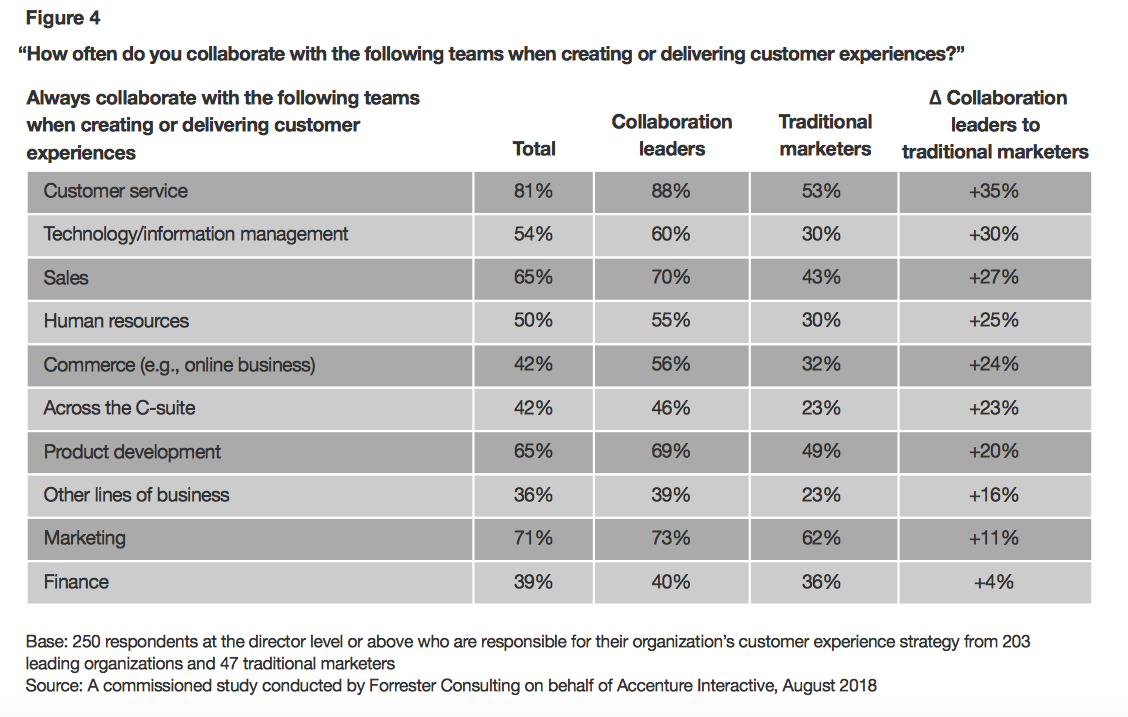
The Future of Marketing and the Changing Role of the CMO
According to a recent report by Forrester, 88% of organizations agree that the role of the CMO has changed in the last couple of years, and will continue to change over the next two years.
In a world of rapidly advancing technology, changing customer attitudes, and unpredictable trends, marketing is evolving at lightning speed. The role of the CMO must also change to fit the changing needs of modern organizations, overseeing not only branding and marketing activities but also business growth and customer experience.
To stay relevant in today’s marketing landscape, CMOs must meet both the needs of the customer and the marketing needs of the business consistently well.
Quick Takeaways:
- The role of the CMO is becoming increasingly vital for the success of a business.
- CMOs must adjust their mindset and working practices to achieve a more collaborative role.
- Telling stories repeatedly is vital for brands to achieve the “human connect” with their customers.
FOCUS ON CUSTOMER EXPERIENCE OVER BRANDING
Customer experience, or CX, will be the key to successful marketing for businesses as we head out of 2019 and into the future.
Marketing and maintaining the company reputation has grown beyond the remit of the marketing department. It’s now the responsibility of every individual in the organization to strive to provide the best possible experience to customers.

When 250 CMOs were surveyed for the aforementioned Forrester report about the key elements they expected to be part of their role for driving new strategies over the next 12 months, the idea of the customer experience was a common theme.
26% of CMOs said they had plans to make interactions “more human”, and 25% said they would focus on fostering customer engagement across the entire customer life cycle.
These responses represent the shift in marketing from company-centered to customer-centered – it’s no longer about what you can do to bring in more leads and generate more revenue (at least, not directly). Instead, you should be asking: “How can we provide a better experience to customers at every stage of their relationship with our organization?”
87% of organizations agree that traditional experiences are no longer enough to satisfy customers, and that company culture must be built around customer experiences to meet their constantly changing needs. 95% of collaboration leaders say that their company is aligned around shared customer experiences.
SHIFT FROM INDIVIDUAL CAMPAIGNS TO CONTINUOUS STORYTELLING
The traditional “marketing campaign” model following the pattern of planning, marketing, reporting, and reviewing is no longer the most effective strategy.
For brands to get the most out of marketing, it now needs to be a continuous process that is constantly refined and adapted.
It’s no longer a case of publishing a piece of content, measuring the results, and trying to improve it in the next campaign. Content can be changed in real-time based on feedback, results, or changing trends, and marketers can continuously measure metrics and optimize as they go along.
New technology such as Artificial Intelligence has made it easier and more efficient to carry out this continuous marketing and optimization. Over 30% of organizations have already invested in some kind of emerging technology to gain an advantage over their competition.
Technology is a key component to enable CMOs to deliver exceptional customer experiences through personalization and real-time interactions with customers.
The concept of storytelling is not new to marketing, but it’s becoming more important as consumers lose trust in brands and demand more authentic content.
Rather than focusing on refining and strengthening your organization’s brand, instead think about what your company stories are. These stories should be woven into every piece of content you produce and be present in every channel you use for marketing.
Salesforce CMO, Stephanie Buscemi, emphasized the importance of brand storytelling when speaking at the Salesforce Connection event last month, she said: “Over the last two years, authenticity and storytelling have been the biggest boon for marketing. There is now so much going on, so much disruption, so everyone is striving for human connection and human storytelling.”
“Marketing needs to ensure it can resonate, it knows how to make that connection, and knows who people are and what motivates them. Then, marketing can help them with a bridge to what is helpful to them. If you just look at data, you’ll miss the empathy of it,” Stephanie added.

















